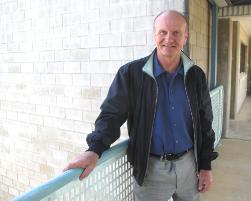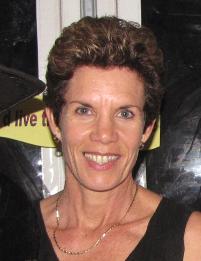Teacher training 'should favour' outcomes over inputs
Published on 18 October, 2010
Measuring likely success by inputs models rather than outputs (outcomes) achieved has always been problematic, according to an academic advocating broad-OP entry into teacher training programs at universities.
CQUniversity's Associate Professor Ken Purnell says research shows that the level of 'interest is as important as capability' when it comes to student achievement. In addition, 'capability' is only part measured in the OP system.

Associate Professor Ken Purnell
"School results are about school results and what influenced student achievement there and at that time. OPs are about achievement in Authority subjects in Year 12," he said.
"The OP system serves well the few programs with strict quotas and high numbers of potential applicants. In any case, alternative pathways to tertiary entrance are used independent of a student's OP."
Meanwhile, CQUniversity's Dean of Education Professor Helen Huntly agrees, saying that: "Measuring the potential of school leavers by their OP, is just as flawed a notion as measuring the effectiveness of a school by its NAPLAN scores".
Dr Purnell says that, each year, an increasing number and proportion of students are not OP-eligible. At present that is about 30% of Year 12 leavers.
"This is as a result of the richness of the senior curriculum where student choices such as following VET outcomes and school to work pathways with apprenticeships, traineeships and so on are attractive to large numbers of students.

Associate Professor Helen Huntly
"Therefore, the OP ‘pool' of school leavers has shrunk significantly since the OP system began in the early 1990s (first full cohort QCSTest was 1992). So those remaining in the ‘pool' still have the 1 to 25 OP system applied for a state-wide ranking.
"The ‘noise' with subject combinations going into the OP system has increased significantly since its original inception by the Viviani Review of 1989. Professor Viviani saw the OP system having a 10-year life span.
"With the subject combinations of the students who are OP eligible, no more than about 600 students do exactly the same set of subjects. Even when you look at say an OP of 12, are you looking at the bottom student who is clearly not demonstrably superior to the top student of OP13. Often it is best to have a two band cut off if needed."
Dr Purnell said research by the Australian Council of Educational Research in 2005 into CQUniversity's Bachelor of Learning Management found that graduates were of the highest calibre.
"The biggest variables are the industry partnerships and the learning experiences of students in the program," he said.
"The research shows that it is what teachers KNOW and CAN DO that counts. Our Bachelor of Learning Management graduates have a depth and breadth of professional knowledge and practices that makes them excel in these qualities.
"Teacher professional knowledge and practice developed through pre-service teacher education and professional activities contributes to student achievement - not their own OP. There are other variables such as parental background, student interest and aspirations, school culture, etc. come into play. But it is teachers with their professional knowledge and practices that they use in the profession that is critical."

